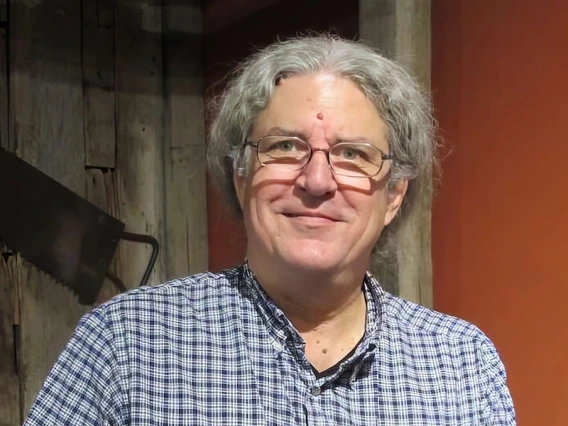
As an author tasked with writing a book on the history of the University of Arizona, Gregory McNamee thought back to his own undergraduate years half a century ago.
Pursuing a major in classics, McNamee was drawn to the Greeks, to people whose ideas lived on, casting influence over the centuries since. So, when he was researching and writing The University of Arizona: A History in 100 Stories, he focused on the same essentials: people, ideas and influence.
“I wanted to be sure to make this book a combination of stories about the institution and the institutions within the institution, but thinking about people, and leading off with the idea that these people are the ones who make the university,” McNamee said.

The book, published in October by the University of Arizona Press, uses the 100 individual stories to paint a full picture of the university’s staggering evolution over almost 140 years, from a small land-grant institution to an internationally renowned research institution. About half of the stories center on the sciences, McNamee said, but the influence of the humanities and arts is clear throughout.
“One of the themes I tried to bring out in the book is how important interdisciplinary work has been, forever. Where that was a new idea at other institutions, at the university, scientists have always collaborated with humanities people,” he said.
McNamee started his undergraduate career as a government major, then changed to anthropology, then traced much of what he was learning back in time to its original sources and ultimately settled on classics. He earned his B.A. in 1978.
“Once I got over to the humanities side of things, that was really the foundation of a literary education that I hadn’t had much of before. I was reading deeply into the ancient authors, surrounded by very, very smart people who were excited to talk about all the ideas humanities represent,” he said. “That propelled me into the thinking that whatever I was going to do in the world, it was going to involve thinking about what it means to be human and how to be a better one. Some of the most memorable teachers I encountered were the ones who were teaching the humanities, and all of them figure in the book.”
As far as his own teachers, McNamee cited the late Richard Jensen, who served as Head of the Department of Classics in the 1970s, and the late Donna Swaim, who is featured in the book with a chapter titled “Donna Swaim and the Power of the Humanities.”
“Donna Swaim helped build the College of Humanities into a powerhouse, ranked 10th among public universities in the nation in 2021,” McNamee writes, listing numerous faculty members and college leaders responsible for the College of Humanities’ continuing excellence: Robert A. Burns, Richard P. Kinkade, Annette Kolodny, Karen Seat and Alain-Philippe Durand, currently serving as Dorrance Dean of the College of Humanities.
“The humanities, in the 50 years I’ve been here, have grown in importance, influence and certainly in number,” McNamee said.
Swaim is mentioned in the book’s dedication section as well, a testament to the broad impact she had on students. Swaim’s reputation at the university boiled down to an endless chain of recommendations, from student to student: “No matter what you do, don’t leave the university without taking a class with Donna Swaim,” McNamee said.
“Many, many professors are admired by their students, many are influential, many are liked and respected, but very few are loved. Donna Swaim was truly loved by her students. She was a living ambassador for the humanities.”
The book also includes a chapter on success and influence of the UA Poetry Center: “If a distinguished poet has drawn breath at any time after 1960, the chances are very good that poet has given a reading at the University of Arizona Poetry Center,” he writes.
The University of Arizona: A History in 100 Stories is the latest in McNamee’s long career as a writer. He is the author or editor of more than 45 books and author of more than 10,000 periodical pieces. He has also been a traveling speaker for AZ Humanities for more than 30 years.

